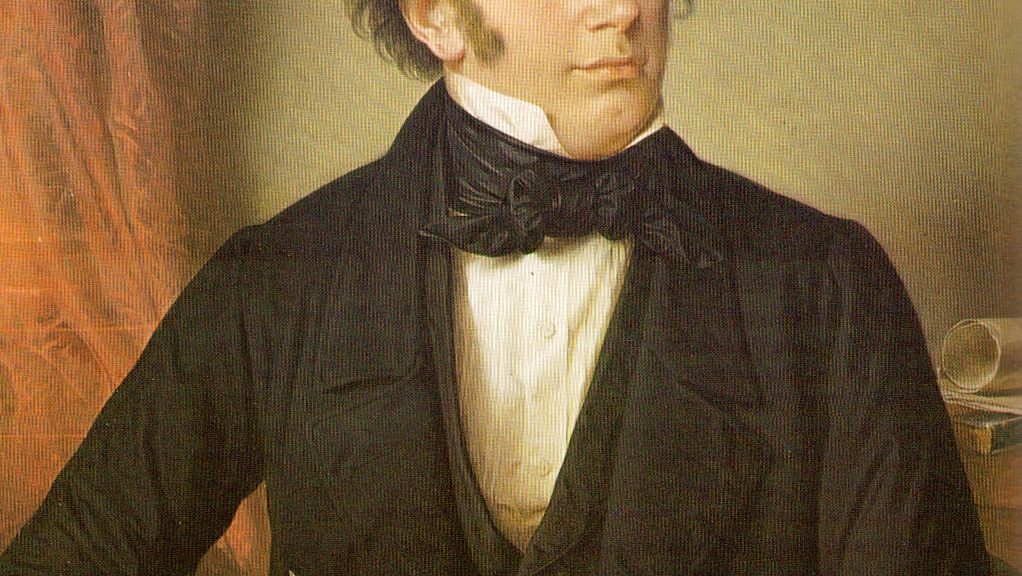FRANZ SCHUBERT, died; The Austrian, classical composer, born (1797) as Franz Peter Schubert in Vienna was, arguably, one of the great masters of 19th century classical music. Not much about Schubert’s life would immediately suggest anything resembling a modern gay man.
But so what? An entire book in 1998 by musicologist and theorist, Lawrence Kramer, Schubert: Sexuality, Subjectivity, Song, is, if not entirely devoted to the subject, addresses it at length with chapter titles like: The Ganymede Complex: Schubert’s Songs and the Homoerotic Imagination, and Mermaid Fantasies: Schubert’s Trout and the “wish to be woman.” No, seriously. As NY Times writer, Edward Rothstein wrote in 1992:
“By the end of the all-day symposium on Schubert at the 92d Street Y … the audience was getting feisty. The last two hours of discussion on “Schubert the Man: Myth vs. Reality,” were concerned with Schubert’s possible homosexuality. The historical evidence was made available throughout the week long Schubertiade festival in a carefully argued 1989 paper by Maynard Solomon. … The second movement of the “Unfinished” Symphony had been analyzed to show its possible homosexual character by the feminist musicologist Susan McClary. And the “marginalization” of Schubert in 1820’s Viennese society had been debated by the panel.
So by the evening’s end, comments were getting more heated. One frustrated listener asserted that “heterosexuals are more repressed than homosexuals.” Another, speaking with irony, asked whether the fact that Schubert was a “short, fat man” had affected the way he wrote music.
On the stage, a few of the seven panelists exchanged barbs as well. But controversy was to be expected; this type of discussion is among the most important of our time; musical analysis is becoming less abstract, and critical interpretation steadily draws the most innocent of compositions into the hothouse world of contemporary politics. Crucial questions were raised, though not satisfactorily addressed: Is there any musical importance to a composer’s homosexuality? Can we generalize about homosexual taste? If so, do we risk imposing contemporary notions on a different era?
The only thing agreed upon, probably, was that Schubert’s personality is not well understood. As for me, I sat through most of Sunday’s talks with a consistent mixture of interest and strong disagreement. Joseph Horowitz, who planned [the 1992] festival, began by summarizing the ambition of the Schubertiade itself. Schubert, he argued, has been trivialized; he has been turned into an innocent, sweet-tempered melodist. But his early music was actually “daring” and “extreme,” Mr. Horowitz said, and he was a promiscuous homosexual who died of syphilis.”
Aren’t we really saying something like, “If you have to ask…”?
